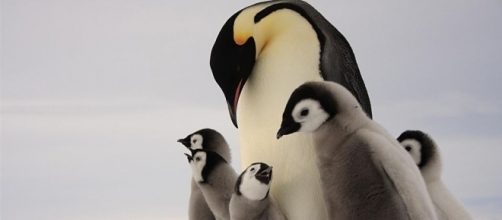A team of scientists headed by doctor Gerald Mayr, along with researchers from New Zealand, described a newly discovered Penguin Fossil in a research paper titled "A new fossil from the mid-Paleocene of New Zealand reveals an unexpected diversity of world’s oldest penguins," published in the scientific journal "The science of Nature." This fossil is considered to be the oldest fossil of a penguin.
The ancient penguin
Penguins are considered to be flightless birds that live almost exclusively in the Southern Hemisphere, with only one species called ''Galapagos penguin." The oldest penguin fossil is supposed to be about 58 to 60 million years old.
The newly discovered penguin fossil is about 150 cm length and dates back to an era called the Paleocene era. The Paleocene era is a time period that lasted from 66 million years to 56 million years ago.
The newly discovered fossil has a bone structure that is much different from the other fossilized penguins from the same era, which gives the impression that the diversity of penguins in the Paleocene era was higher than it was once believed to be. Therefore the researchers concluded that the emergence of the penguin species happened much earlier than previously thought, maybe even as old as the dinosaurs, as Dr. Mayr clarifies "The discoveries show that penguin diversity in the early Paleocene was clearly higher than we previously assumed.
In turn, this diversity indicates that the first representatives of penguins arose during the age of dinosaurs, more than 65 million years ago."
Significance of discovery
According to the researchers, the penguin lived about 61 million years ago, and it had a length of 150cm, which is very close to the largest known penguin fossil known as "Anthropornis nordenskjoeldi" which lived around 45 to 33 million years ago. This indicates an unexpected growth in the size of the animal which challenges our knowledge of the fossil record of penguins. Mayr explained the significance of the discovery, "This shows that penguins reached an enormous size quite early in their evolutionary history, around 60 million years ago."
The fact that this fossil is that old gives a strong indication that penguins are older than previously thought, and that they may even go as far back as the age of dinosaurs. Such a discovery is important for the study of the fossil record of animals and also for correcting any flawed assumption in our current models.

